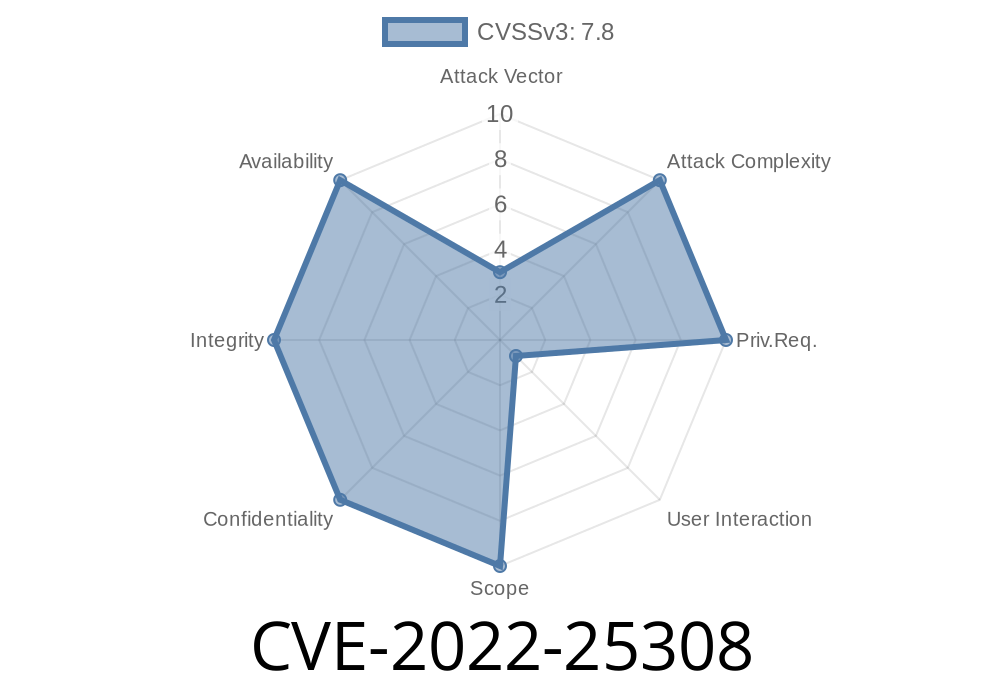In early 2022, security researchers uncovered a critical vulnerability in the Fribidi library—an essential piece of software used to handle bidirectional text in apps ranging from office suites to web renderers. Tracked as CVE-2022-25308, this flaw is a classic stack-based buffer overflow, and it’s particularly threatening to systems and applications that process untrusted text data.
In this post, I’ll break down how this vulnerability works, show you actual code snippets, walk through a simple proof-of-concept, and point you to more in-depth resources. No fluff—just what you need to know about this bug.
What is Fribidi?
Firbidi is a free and open-source implementation of the Unicode Bidirectional Algorithm, which is crucial for displaying languages like Arabic and Hebrew where text direction can be right-to-left or left-to-right.
A single vulnerability here can have cascading effects, compromising any application that relies on it, from document editors to web browsers.
Where’s the Bug?
The issue in CVE-2022-25308 comes down to how Fribidi handles certain input files. Specifically, when parsing an overly long input, Fribidi fails to check if the destination buffer is large enough before copying data—allowing attackers to overwrite nearby stack memory.
The breakdown of the vulnerable code is in the following simplified excerpt (from affected versions)
FriBidiStrIndex max_index = 255;
FriBidiStrIndex stack_variables[256];
...
int input_length = get_input_length();
// No length check here!
for (int i = ; i < input_length; ++i) {
stack_variables[i] = process_char(input[i]);
}
input_length can be greater than 256
- Writing stack_variables[i] for i > 255 will overflow the allocated array and overwrite nearby stack memory
This classic mistake—using input-supplied size values without bounds checking—opens doors to nasty exploits.
Exploiting CVE-2022-25308: Proof of Concept
Let’s walk through a simple crash PoC. Since Fribidi usually works on text files, an attacker just needs to craft an *unusually* long sequence of text.
Here’s a sample one-liner in Python to generate a dangerous file
# This will create a file with 1024 'A's (well beyond the 256 buffer)
with open('evil.txt', 'w', encoding='utf-8') as f:
f.write('A' * 1024)
Then, if you run a vulnerable version of Fribidi on this file (such as with the fribidi CLI utility):
fribidi evil.txt
The program will crash—and on many platforms, this can even show a "Segmentation fault".
While the quickest result is a crash, determined attackers could exploit this overflow to
- Leak memory values. Overwriting function pointers or adjacent stack can sometimes yield memory addresses or secret data.
- Possibly execute code. Stack overflows, though harder to exploit today due to modern mitigations like stack canaries, can sometimes be leveraged for arbitrary code execution.
Fribidi maintainers quickly patched the flaw
for (int i = ; i < input_length && i < 256; ++i) {
stack_variables[i] = process_char(input[i]);
}
By adding a simple bounds check (i < 256), they eliminate the overflow.
How Do I Stay Safe?
1. Update Fribidi: Grab the latest version from the official releases page.
2. Scan your apps: Do you depend on tools that use Fribidi (e.g., text editors, PDF viewers, browsers)? Make sure they’re not bundling an old version.
3. Advise users: If you maintain software that takes untrusted input, always vet dependencies for security updates.
More Reading & References
- NVD entry for CVE-2022-25308
- Original GitHub security advisory and patch
- Red Hat Security Advisory
- fribidi Project Page
Final Thoughts
CVE-2022-25308 is a reminder: Every input needs validation. A single unchecked length can ripple outward, especially in widely used libraries like Fribidi. If your tools handle third-party text files, *an update isn’t optional—it’s essential*.
If you need more help or want a deeper dive into practical exploitation of stack overflows, let me know! Stay safe and keep your dependencies up to date.
Timeline
Published on: 09/06/2022 18:15:00 UTC
Last modified on: 09/08/2022 14:49:00 UTC
